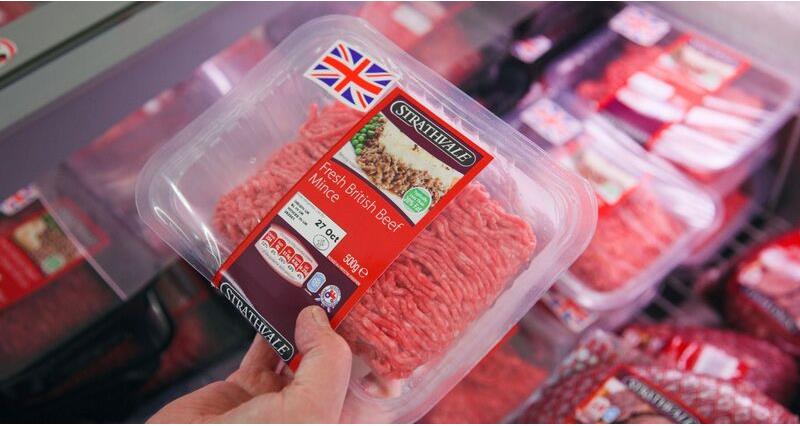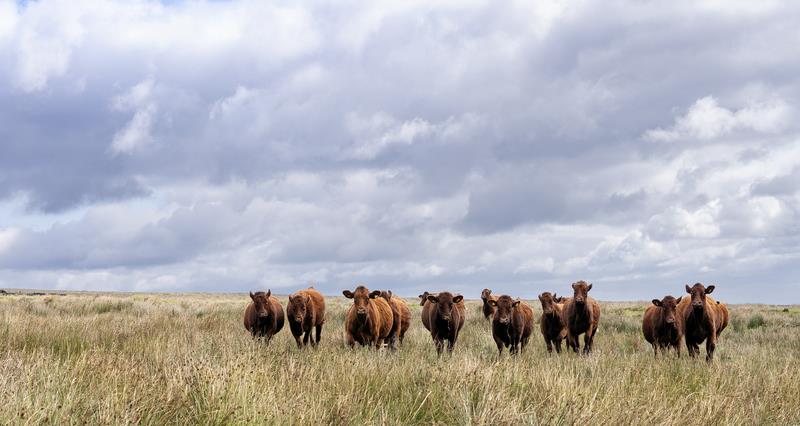When retailers publicise sourcing commitments to British beef from British farms, it gives confidence to the sector and reassurance to the public that want to buy British food.
We expect those retailers to keep to their promises.
I am therefore extremely disappointed to see retailers reneging on commitments with produce such as beef from Uruguay on Asda shelves and beef from Australia on Morrisons shelves. This undermines the confidence of British farmers, particularly where imported produce is potentially produced to lower welfare standards than British produce.
Sourcing from British farms and backing British farming has been used as a growth strategy and brand builder by these retailers; supermarket banners have images of the British farmers, our countryside and union flags.
And yet, it seems on the rare occasions when the price of beef gives fair reward to British producers, much needed at this current time of crisis, these sourcing commitments are abandoned.
Earlier this year these same retailers signed a letter to the Treasury asking for a rethink on its proposed changes to inheritance tax. The letter said that investment in British farming would decline, productivity would flatline, and sustainable food production would be at risk.
Farmers appreciated this show of support, so it is unsurprising that many farmers feel immensely let down when the same retailers back away from commitments to support British farming, undermining the confidence of the industry.
Decline in confidence, decline in cattle
After receiving blow after blow from the government, to see retailers and large food service companies depart from their sourcing commitments and switch to alternatives, which have the potential to be produced to lower welfare standards than are allowed here, feels like a kick in the teeth.
Confidence among British beef producers is already at an all-time low.
�ճ����NFU’s Farmer Confidence Survey results (carried out between November 2024 and January 2025) showed that both short and mid-term confidence has been decreasing significantly between since 2021, falling again into 2024 despite strong farm-gate prices.
“When UK retailers state their commitment to British agriculture, it is important their actions reflect the commitments given.”
NFU Livestock Board Chair David Barton
Due to this lack of confidence, reports the total cattle population (April 2025) at 7.54 million head, down 1.7% since the year prior. The main driver of this decline was further contraction in the beef breeding herd, down 3.4% from the same time last year.
Retailers u-turning on their commitments to support British farming will only erode this confidence further putting increased pressure on an already shrinking supply. This will undoubtedly hit retailers at a time when consumers are demanding British produce on their shelves.
Hit to long-term food security
We live in changing world; conflict, trade barriers and tariffs, disease, population growth and climate challenges could all interrupt supply.
Surely, we need retailers and our processors to be encouraging and investing in British food, and ensuring that high quality British produce has pride of place on supermarket shelves?
Our nation’s long-term food security depends on it.
The very real danger is once livestock numbers have reduced here, British beef and lamb production cannot simply be turned back on overnight; it would take time to rebuild our industry, and growth can only happen if the sector has the confidence to invest in the future.
We have set-out our ambition for the sector in our 2035 beef vision report – we need to see government policies that support production, ensure fairness in the supply chain and develop models that share risk and the costs of production.
Informing consumers
When UK retailers state their commitment to British agriculture, it is important their actions reflect the commitments given. So, while the sourcing choices of retailers are for them, as British farmers we can and do feel very strongly that we should have a fair and level playing field to enable us to compete.
We are being required to produce food to ever higher standards while food produced to standards that would be illegal here is making its way to supermarket shelves.
The public strongly supports British farmers who produce food to the highest welfare and environmental standards. We had one million signatures telling us so. Clear labelling of produce is essential to ensure that consumers who value the high quality of British produce can make informed decisions and be confident about what they are purchasing.
We also believe that if retailers are going to make great public play of their support for British farming, they need to be crystal clear with consumers when they’re doing that but also when they’re not.





